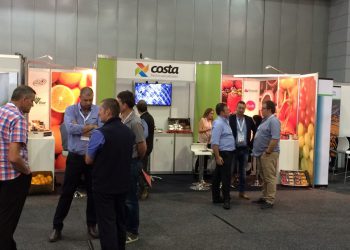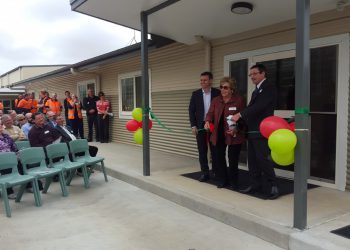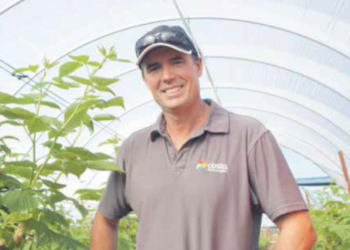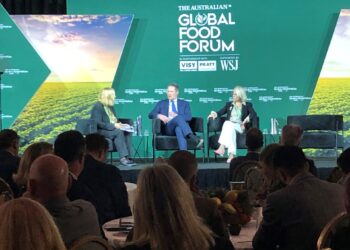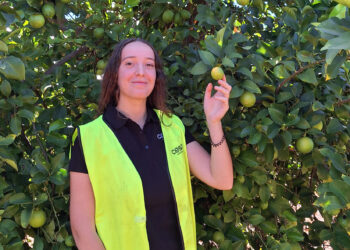The following article appeared in the Northern Valleys News, issue 61.
Raspberry fields Forever
By Tamieka Preston, May 7, 2016
As dawn breaks over the sea of polytunnels at Costa Group’s newest berry farm west of Gingin, a tide of workers arrive on site to gather the daily bounty from row upon row of heavilyladen vines.
They will carefully hand-pick approximately 100 tonne of ruby red
raspberries and 300 tonne of brilliantly blue blueberries during the winter berry picking season which stretches from April to November in Western Australia. It may seem like an abundance of berries – but this is just the beginning.
Farm Manager Stephen Beckwith, who previously worked in the olive industry, joined Costa in September 2014 when the Gingin property was nothing but a bare block with a terrific water supply.
“We started from scratch here” he recalls. Now 28 hectares of plants are snugly cultivated under a mass of tunnels and even more infrastructure is still underway.
“Our processing facility is being built and will be used later this year when the blueberry harvest is in full swing,” says Stephen.
Gingin is one of the smaller farms owned by horticultural giant Costa, who produce berries, mushrooms, tomatoes, citrus, bananas, avocados and grapes from more than 30 farms across Australia.
Stage 1 of the Gingin farm included 10 ha of raspberries and 5.5 ha blueberries with Stage 2 adding another 12.5 ha of blueberry’s last July. Expansion is planned to continue to meet strong local demand, and we may really be seeing raspberry fields forever if the new free trade agreements open up the potential markets in South-East Asia.
Staff numbers at the Gingin farm swell from 15 to 30 throughout the year to a berry-picking army of up to 150 during peak production (they are currently on the lookout for more picking staff – see employment page 23 if you are jobseeking).
Whilst it’s an early start, and a 6-7 day-a-week job, picking conditions in the huge tunnels are pleasant, with a comfortable ambient temperature and the wind and rain kept at bay to protect the precious fruit. However bees could prove an on-the-job hazard if you’re allergic – the air is a-buzz with the insects which are introduced to maintain optimal pollination. A degree of self-control is also required, to resist the temptation to overindulge
on luscious berries.
Cultivation of such fragile fruit is intensive. “It’s a more controlled horticultural crop than olives, more challenging, but you have more control over the outcomes,” says Stephen.
Both the raspberry and blueberry plants are grown in pots. “The full substrate production we use here is extremely water efficient,” explains Stephen. Whilst they expect to get up to seven years production out of the blueberry bushes, the raspberry plants begin each season as root matter, which grows vigorously to produce autumn fruit. Although they are technically a perennial, it’s just not cold enough here for the plant to undergo proper dormancy as it does in Harvest Manager Spencer Clark’s native England.
“My family back home think it’s funny I work at a raspberry farm,” he says, “At home they just grow wild on the roadside.”
Raspberries are in season now and available in supermarkets, blueberries will come out in June. Packed with antioxidents and numerous health benefits there’s every reason to indulge in this
delicious fruit.
END


